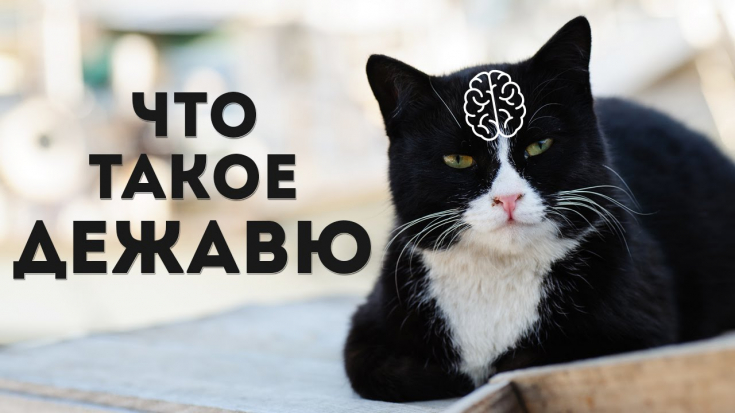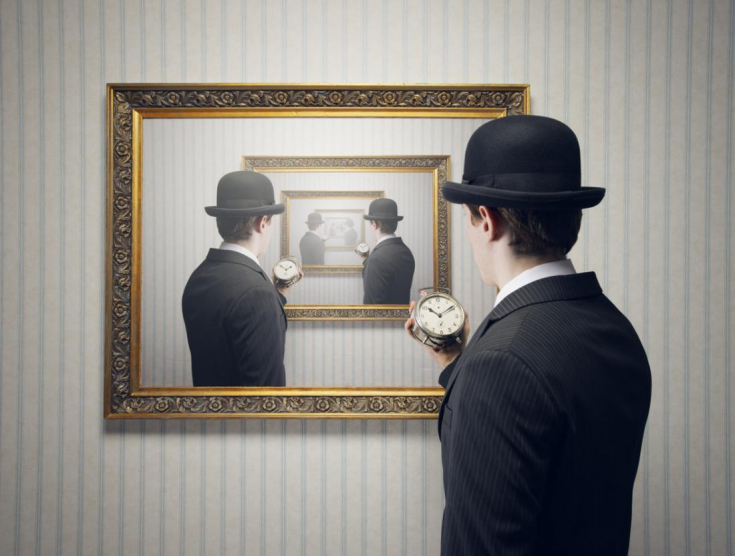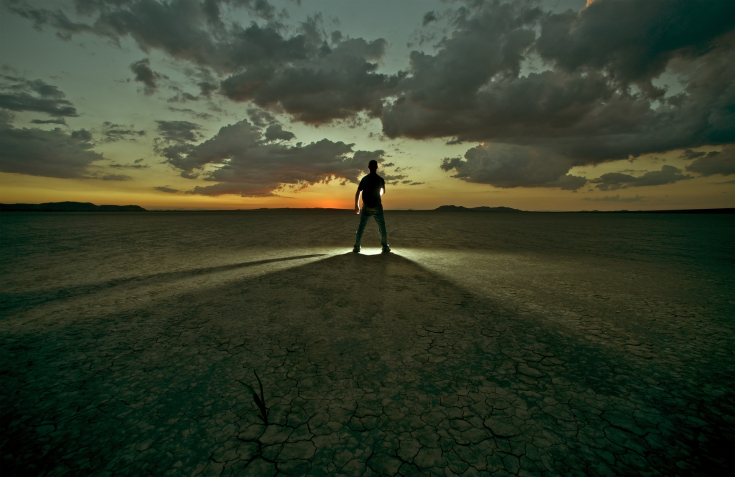According to various sources, from 90 to 97% of all people at least once experience the effect of deja vu. This means that almost every one of us had to experience a feeling of unreality and a repetition of events. Some people have repeatedly experienced déjà vu and describe it as a feeling while watching a movie: the situation seems painfully familiar, but it is impossible to remember what will happen next.
Some consider the déjà vu effect to be a foresight, others — dangerous symptom. What is it really?
- What is the deja vu effect: who is particularly susceptible to it
- The Mechanism of the Occurrence of the Mysterious Phenomenon of Perception
- The most common causes of hippocampal failures
- Interesting facts about time distortion humans
- The main thing about the features and mechanism of occurrence of the déjà vu effect
What is the deja vu effect: who is especially susceptible to it
Deja Vu (from French déjà vu — «has already been») — this is a special state in which it seems to a person that the events that are happening to him now have already happened in the past or have dreamed before. The good news is that almost everyone has experienced déjà vu. There is also a bad thing: most often this feeling visits people with epilepsy, schizophrenia.
Follow us on Instagram

Physiologists say that the phenomenon of deja vu is not characteristic of children. For the first time, they may encounter it not earlier than 8-11 years. Most often, the effect is observed in young people (about 17 years). This is due to the peculiarities of the development of the brain. "Second wave" — 35-40 years when people rethink their experience, overestimate values.
Read also: Neurographics: Managing Your Life With Drawing
Research on the effect has been going on for a long time, but there is little verified information, since it is impossible to artificially induce déjà vu.
The scientists' most probable assumption is that a person experiences this strange state when the brain changes the way the time is coded. Then the sensations of the past and the present are superimposed: it seems to a person that he fell out of reality.
Some scientists believe that deja vu occurs when the feelings experienced in a dream are superimposed on the current moment in time. If a person finds himself in a situation where he experiences sensations that he had previously dreamed of, a distortion of perception is possible. This is a plausible version that explains well why the
Although the deja vu effect has been known since time immemorial (it was described and studied by ancient Greek philosophers), the concept itself appeared only at the end of the 19th century. It was introduced by the French psychologist Émile Boirac. He explored a whole complex of phenomena associated with associations and "strange sensations" previously experienced, seen, heard.
Modern scientists, using the latest methods of studying brain activity, have moved a little further. They determined that deja vu originates in the hippocampus — temporal lobe of the brain.
It is here that the zone is located, in which the comparison of already known and new information takes place. Thanks to this, a person understands what is common between it and in what are the differences.Read also:
Character in heritage: the influence of genes on our behavior If the hippocampus fails, the images will not be processed analytically. They immediately get to memory center, and there there immediately comes a request for comparison of information. It turns out that the brain compares new information with the one it has received now, considering it received earlier. Fresh impressions are layered upon each other, and so there is a feeling that all this
was before. Most Common Causes of Hippocampal Failures
If we exclude diseases (epilepsy, schizophrenia and others), then the causes of the phenomenon can be as follows:
- Fatigue.
Overexertion and lack of sleep can "knock down the settings" brain and cause a state of deja vu.
- Stress.
Mental stress, hypothermia, overheating — all this does not benefit the brain.
- Depressions.
This is clinical depression, and not just a state of blues.
- Differences in pressure.
As the body adapts to the changes, short-term malfunctions in the hippocampus may occur.

There is another curious phenomenon that may be related to the déjà vu effect. It was discovered by a group of University of Colorado scientists working in the team of psychologist Ann Cleary. It turns out that when a person sees something new and tries to answer the question of what it is, a burst of neural activity occurs in the temporal lobes of the brain. The subjects admitted that they wanted to name the phenomenon incorrectly, because they had associations with the fact that
they had seen before. Interesting facts about temporal distortions in humans
The déjà vu phenomenon is not described only in scientific literature:
- Chateaubriand, Charles Dickens, Leo Tolstoy, Marcel Proust and other writers mentioned deja vu.
-
-
-
Cosmic sounds of hanga: how they affect a person

The emotions that people experience during deja vu are so strong that they are often associated with memories from a past life or
the gift of foresight. The main thing about the features and mechanism of the effect déjà vu
If you've experienced a very realistic feeling that ever happened to you before, don fear. There is nothing wrong with the deja vu effect. This condition is experienced by almost all people on the planet. Remember that:
- Frequent cases of "falling out of reality" can be an alarming symptom
, but if this happens rarely, there is no cause for concern.
The déjà vu phenomenon is most typical for people aged around 17 and 35-40 years old. -
- Hippocampus failure can occur due to fatigue
, stress, pressure changes.

Although mystical causes are attributed to the phenomenon of deja vu, there is nothing magical about it. But believing in miracles still no one forbids
Read also:How biohacking heals and increases lifespan
More useful information on our








Add a comment